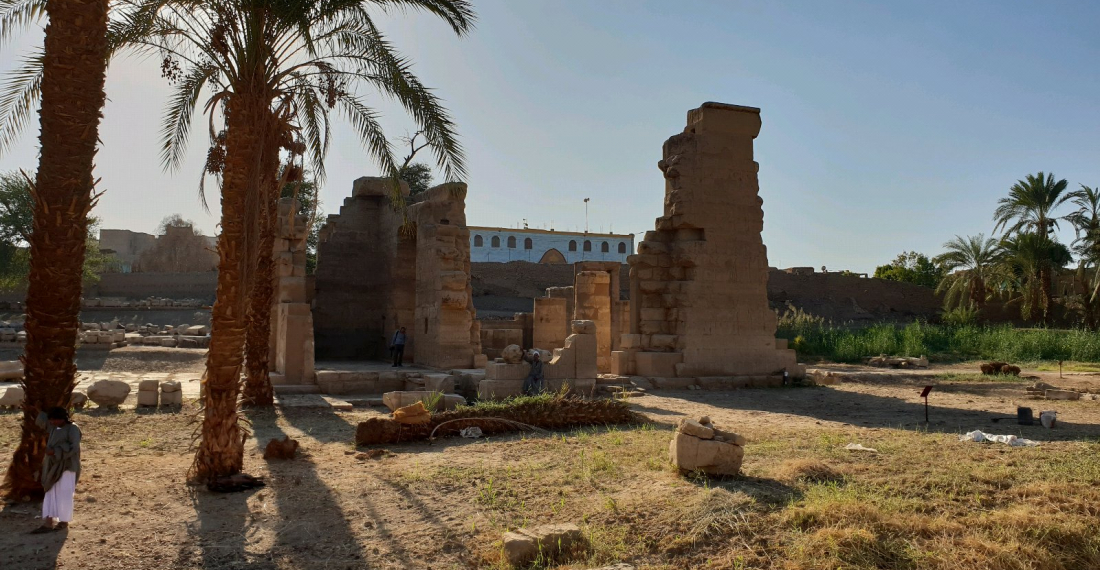A Chinese-Egyptian archaeological mission has been working to restore the once-abandoned Montu Temple in Luxor, according to a statement from Egypt's Ministry of Tourism and Antiquities.
The first Egyptian-Chinese archaeological mission in Egypt is the outcome of a protocol of cooperation signed between the Egyptian Ministry of Antiquities and the Chinese Academy of Social Sciences. They formed a joint Egyptian-Chinese archaeological mission to do the excavation works in the relics of Montu Temple that was untouched and closed for visitors for decades.
Despite the short time spent on the restoration, the joint team has been able to achieve significant results. Mustafa al-Saghir, director-general of Karnak Temple Complex Antiquities, said that the excavations have revealed the architectural elements of the temple.
"There are also restoration works in many parts of the temple... the mission is also conducting special studies such as the study of pottery and inscriptions found in the temple and its buildings," al-Saghir added.
Al-Saghir pointed out that the spread of the COVID-19 pandemic impacted the mission's work as the Chinese team could not come to Egypt to complete its works for this season."We are working at the site to avoid any negative effects... the Egyptian crew is currently completing some minor works to keep the work at the temple ongoing," he added.
"The Egyptian members of the mission were chosen carefully... they have great experiences in Egyptian archeology," al-Saghir said.
"Cooperation is great between the two sides, and this is the main reason that led the mission to achieve great results during only two seasons," he added.
Al-Saghir noted that a Chinese study and research centre for Egyptian antiquities will be established in Egypt, which will help sponsor the activities of the Chinese archaeological missions that will work in Egypt in the future. China has modern technologies that can help in excavation and restoration activities.
Montu Temple was discovered in 1925, and was built to honour the Egyptian falcon-god of the war. It is located in the Karnak Temple Complex which is an open-air collection of temples, chapels, pylons, and other buildings near Luxor dating back from the New Kingdom.
Egypt, one of the world's oldest civilizations, has been working hard to preserve its archaeological heritage and discover the secrets of its ancient artifacts. Over the past few years, the country has witnessed several big archaeological discoveries including pharaonic tombs, statues, coffins, mummies, burial sites, and funerary gardens.
Source: commonspace.eu with Xinhua (Beijing).
Picture: Temple of Montu.







